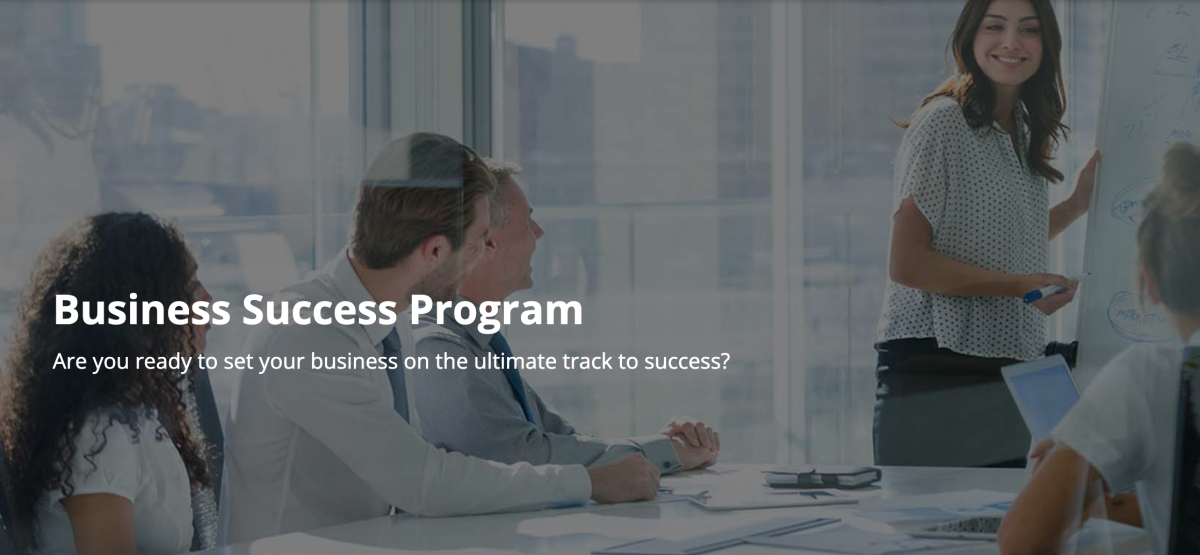Building Strong Teams & Fostering Employee Engagement: Coaching Strategies for Collaboration and Motivation
Bundoora, Australia - April 25, 2024 / Gary White Business Coaching /
The Employee Engagement & Retention Battle: Gary White Business Coach Top Tips
Gary White is one of Melbourne's best business coaches and has helped a plethora of businesses and their teams function better and become more productive and profitable. In this article, Gary passed on his knowledge in the area of building great teams within businesses.
Team building and employee engagement play a pivotal role in the success of small to medium businesses (SMBs) in Australia. In a competitive market landscape, fostering a cohesive team environment and ensuring high levels of employee motivation are essential for driving productivity, innovation, and overall business performance.
THE BENEFITS OF TEAM BUILDING AND EMPLOYEE ENGAGEMENT
Investing in team building and employee engagement is not only beneficial for individual employees but also critical for the overall success and sustainability of Australian SMBs. SMBs can create a thriving workplace culture that drives innovation, productivity, and competitive advantage by fostering strong teams, promoting employee engagement, and reaping the benefits outlined below:
1. Improved Communication: Team building activities promote open communication channels among team members. Enhanced communication leads to better understanding, collaboration, and the ability to address issues effectively, resulting in improved productivity and performance.
2. Boosted Morale and Motivation: Engaging in team-building exercises and fostering a positive work environment through employee engagement initiatives can significantly boost morale and motivation within the team. Employees feel valued, supported, and more invested in their work, leading to increased job satisfaction and loyalty to the organization.
3. Strengthened Relationships: Team-building activities provide opportunities for team members to interact outside of the workplace environment, fostering stronger relationships and a sense of camaraderie. Stronger relationships lead to increased trust, cooperation, and support among team members, enhancing overall teamwork and collaboration.
4. Enhanced Problem-Solving Skills: Team-building exercises often involve problem-solving challenges and activities that require creative thinking and collaboration. By participating in these activities, team members develop critical thinking skills, learn to work together effectively, and become better equipped to tackle complex problems in the workplace.
5. Increased Innovation and Creativity: A collaborative and supportive team environment encourages employees to share ideas, experiment with new approaches, and think outside the box. Engaged employees are more likely to contribute innovative solutions and drive creativity within the organization, leading to improved products, services, and processes.
6. Higher Levels of Productivity: When employees feel engaged, motivated, and supported, they are more likely to be productive and efficient in their work. By investing in team building and employee engagement initiatives, SMBs can significantly improve productivity levels, leading to better business outcomes and increased profitability.
7. Reduced Absenteeism and Turnover: A positive work environment characterized by strong teamwork and high employee engagement can help reduce absenteeism and turnover rates. Engaged employees are more likely to be committed to their jobs and less likely to seek opportunities elsewhere, resulting in cost savings for SMBs in terms of recruitment, training, and lost productivity.
8. Enhanced Customer Satisfaction: Engaged and motivated employees are more likely to deliver exceptional customer service and go above and beyond to meet customer needs. By fostering a culture of employee engagement and teamwork, SMBs can improve customer satisfaction levels, leading to increased customer loyalty and retention.
9. Positive Organisational Culture: Team building and employee engagement initiatives contribute to the development of a positive organizational culture characterized by trust, respect, and collaboration. A strong organizational culture attracts top talent, promotes employee well-being, and sets the foundation for long-term success and growth for Australian SMBs.

COACHING STRATEGIES FOR TEAM BUILDING
Companies consistently search for effective coaching strategies to enhance employee performance. This pursuit aligns to improve overall team performance, positively impacting sales, marketing, customer service, and product development. Some of the coaching strategies below are not only performance-driven but also cost-effective.
1. Define Clear Goals and Expectations: Start by establishing clear goals and expectations for the team. Communicate the objectives, timelines, and desired outcomes of projects to align everyone's efforts.
2. Promote Open Communication: Encourage open communication channels within the team, where every member feels comfortable sharing ideas, concerns, and feedback. Use regular team meetings and brainstorming sessions to foster collaboration.
3. Facilitate Team-Building Activities: Organise team-building activities and workshops to strengthen relationships, build trust, and enhance teamwork. These activities could include outdoor retreats, problem-solving challenges, or team-building exercises facilitated by professional coaches.
4. Encourage Diversity and Inclusion: Embrace diversity and inclusion within the team by valuing different perspectives and experiences. Encourage collaboration among team members from diverse backgrounds to foster creativity and innovation.
5. Lead by Example: As a leader or manager, you need to lead by example by demonstrating teamwork, empathy, and respect toward your team members. Show appreciation for their contributions and celebrate achievements together.
COACHING STRATEGIES FOR FOSTERING EMPLOYEE ENGAGEMENT
Employee engagement is so important to all organizations because having effective strategies in place helps create a better work culture, reduce staff turnover, increase productivity, build better work and customer relationships, and impact company profits. Yet it also makes employees happier and turns them into your best advocates.
1. Provide Meaningful Work: Assign tasks and projects that align with employees' skills, interests, and career aspirations. Engage them in meaningful work that challenges and motivates them to excel.
2. Offer Opportunities for Growth: Invest in employee development and training programs to help them acquire new skills and advance in their careers. Provide opportunities for growth and advancement within the organization.
3. Recognize and Reward Achievement: Acknowledge and reward employees for their hard work and achievements. Implement a recognition program that celebrates milestones, accomplishments, and exemplary performance.
4. Promote Work-Life Balance: Support a healthy work-life balance by offering flexible work arrangements, such as remote work options or flexible hours. Encourage employees to take breaks and prioritize their well-being.
5. Solicit Feedback and Act on It: Regularly solicit feedback from employees through surveys, one-on-one meetings, or suggestion boxes. Act on their feedback by addressing concerns, implementing changes, and involving them in decision-making processes.
UTILISE EXTERNAL RESOURCES
External resources such as a business coach can also offer a fresh perspective, unbiased feedback, and best practices from other organizations that have faced similar challenges. For example, business consultants and coaches are independent professionals who can provide you with specialized advice, support, and intervention for specific situations or challenges.
For example, you can hire a consultant to conduct an employee engagement survey, a coach to help you improve your communication skills, or a mediator to facilitate a conflict resolution process. Consultants and coaches can bring a tailored approach to your employee relations through:
1. Expertise and Experience: Business consultants or coaches bring valuable expertise and experience in organizational development, leadership, and human resources. They can provide insights and best practices tailored to the specific needs and challenges of SMBs.
2. Objective Perspective: Consultants offer an objective perspective on team dynamics, communication issues, and organizational culture. They can identify areas for improvement and recommend strategies to enhance teamwork and employee engagement.
3. Customised Solutions: Consultants work closely with SMBs to understand their unique goals, challenges, and culture. They develop customized solutions and action plans to address specific team-building and engagement needs.
4. Training and Development: Consultants offer training workshops and coaching sessions to equip managers and team leaders with the skills and tools needed to build strong teams and engage employees effectively.
5. Accountability and Support: Consultants provide ongoing support and accountability to ensure the successful implementation of team-building initiatives and employee engagement strategies. They track progress, provide feedback, and make adjustments as needed to achieve desired outcomes.
OVERCOMING CHALLENGES IN TEAM BUILDING AND EMPLOYEE ENGAGEMENT
1. Remote Work Challenges: With the rise of remote work, SMBs may face challenges in fostering teamwork and engagement among dispersed teams. Implement virtual team-building activities and communication tools to bridge the gap.
2. Limited Resources: SMBs often have limited resources to invest in team-building initiatives and employee engagement programs. Focus on low-cost or no-cost activities, such as peer recognition programs or cross-training opportunities.
3. Resistance to Change: Some employees may resist change or be hesitant to participate in team-building activities. Address their concerns, provide reassurance, and lead by example to overcome resistance and foster a positive team culture.
CONCLUSION
Building strong teams and fostering employee engagement are essential for the success and sustainability of Australian SMBs. By implementing strategies that promote teamwork, collaboration, and motivation, SMBs can create a positive work environment where employees feel valued, empowered, and motivated to contribute to the organization's success.
Investing in team building and employee engagement initiatives not only enhances productivity and performance but also strengthens the overall culture and reputation of the business in the competitive Australian market. With a focus on clear communication, supportive leadership, and continuous development, Australian SMBs can create a thriving workplace where employees feel valued, empowered, and motivated to excel.

Contact Information:
Gary White Business Coaching
Waterman Workspace, Suite 137,Tenancy 202, Level 2, 1/3 Janefield Dr
Bundoora, VIC 3083
Australia
Gary White
+61 418 344 367
https://garywhite.com.au/




